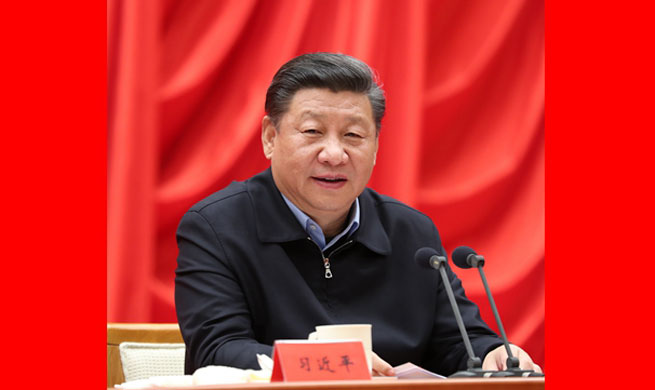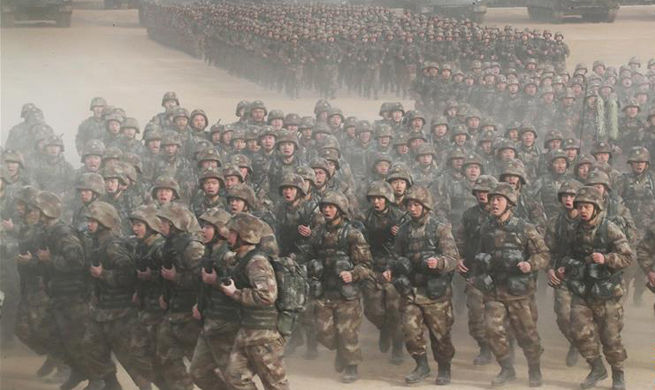GAZA, Jan. 7 (Xinhua) -- The U.S. administration's threats to cut aid to the Palestinians is a new approach to impose conditions on the Palestinians to end the prolonged Israeli-Palestinian conflict, experts said on Sunday.
The threats are clear financial and political blackmail aimed at twisting the arm of the Palestinians in order to make them accept the U.S. demands to end the conflict with Israel, observers said.
On Friday, Israeli media reported that the United States has frozen 125 million U.S. dollars of 346 million it donates annually to the United Nations agency caring for Palestinian refugees after Palestinian President Mahmoud Abbas refused to get engaged in U.S.-led peace negotiations with Israel.
The aid cuts came days after U.S. president Donald Trump threatened to do so to the Palestinians if they refuse to return to the negotiations table with Israel.
Trump said Tuesday on Twitter that "we pay the Palestinians hundreds of millions of dollars a year and get no appreciation or respect. They don't even want to negotiate a long overdue peace treaty with Israel ... with the Palestinians no longer willing to talk peace, why should we make any of these massive future payments to them?"
In response, the Palestinian presidency condemned the U.S. threats, saying that negotiations and real peace should be based on the international and Arab legitimacy.
"The U.S. threats mainly aim at submitting the Palestinians to the U.S. dictations," said Ahmed Awad, a professor of political science with Beir Zeit University.
The United States has adopted a new policy based on imposing financial sanctions and embargoes in addition to threats of use of force, which is extremely a new style that has never been used by previous U.S. administrations, Awad said.
"The United States and Israel do not really seek to negotiate with the Arabs or the Palestinians; they only want to impose their conditions by the force of money," he pointed out.
The Palestinian side, on the other hand, should also follow new policies, Awad said.
Ties between the Palestinian National Authority (PNA) and the United Stated have worsened since Trump's December acknowledgment of Jerusalem as the capital of Israel, a move that has angered millions of Arabs and Muslims across the globe.
The Palestinians want East Jerusalem as the capital of their future independent state, while Israel wants all Jerusalem to be its eternal capital.
While Israel took over East Jerusalem from Jordan in the 1967 war and declared the whole city as its eternal indivisible capital in 1980, it has not been recognized by the international community.
The Palestinians insist that they should establish an independent state with East Jerusalem as its capital in the final settlement.
Under the previous Israeli-Palestinian peace accord, the status of Jerusalem should be determined through the final-status talks between Israel and the Palestinians. All countries have so far located their embassies in Tel Aviv, in order to advance the Israeli-Palestinian peace process.
"The policies of the United States and Israel have blocked the road to the serious peace process after they have openly confronted the Palestinians and all their backers," Gaza based political observer and writer, Talal Okal, said.
Okal believes that the Palestinians should put their differences aside and adopt a unified strategy to counter the growing challenges that endanger the future of the Palestinian cause.
"The international community should support the Palestinians by all means against the U.S. blackmail in order to make comprehensive and fair peace," Okal added.
Peace talks between the Palestinians and the Israelis have been stalled since 2014 due to Israel's continued expansion of Jewish settlements in the Palestinian territories.

















